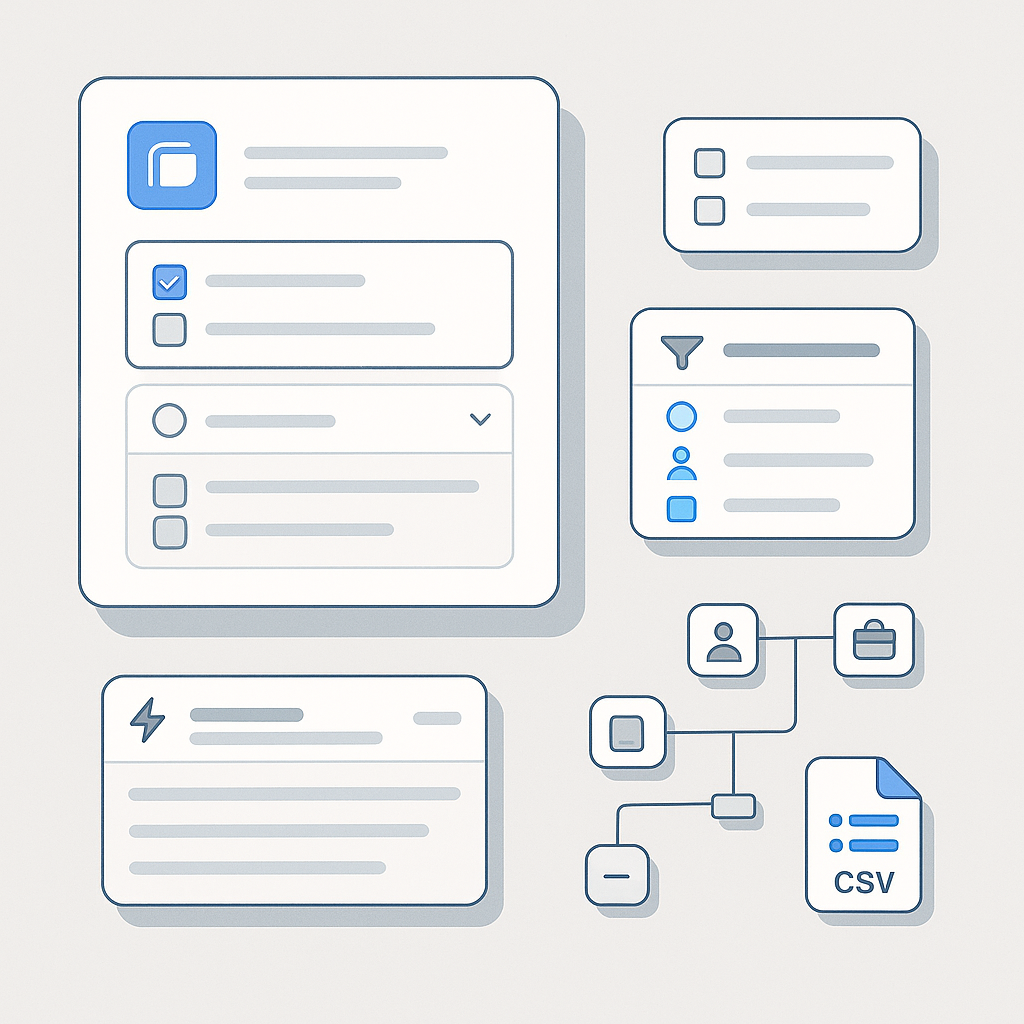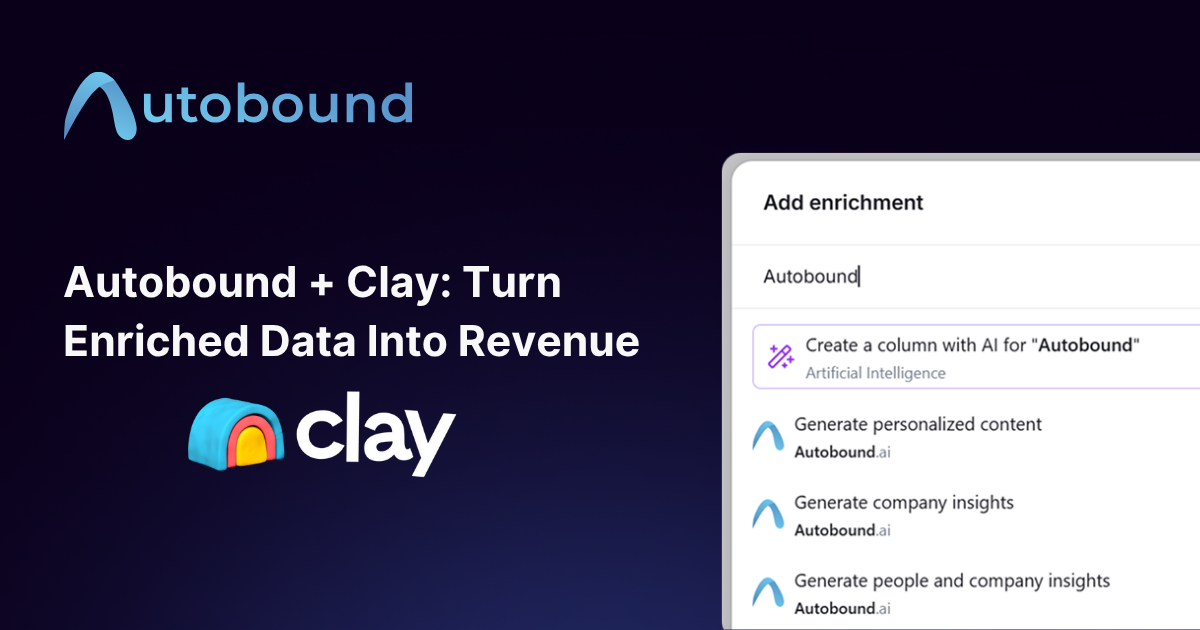Imagine this: the year is 2025, and your sales team is stuck in a rut, churning out the same tired outreach while their quotas loom like menacing giants. Unbeknownst to them, their ideal prospects are miles ahead, laser-focused on a game-changing strategy: AI adoption. These forward-thinking companies aren't just looking for any AI talent; they're on the hunt for the elusive, highly-skilled AI research engineers, the masterminds who can catapult them to the forefront of their industries. And it's not just the usual suspects in Silicon Valley; this AI arms race is sweeping across sectors, from healthcare to finance, as businesses everywhere wake up to the transformative power of AI.
But here's the good news: this talent grab isn't just a headache for HR departments; it's a golden opportunity for savvy B2B sales and marketing teams. Knowing how to identify and target companies actively seeking AI research engineers is like having a secret weapon in your arsenal. This guide will equip you with the insights and tactics to do just that, turning this AI talent frenzy into a goldmine of opportunity for your business.
Why Targeting Companies Hiring AI Research Engineers is Smart Business
Let's face it, in the business world, not all prospects are created equal. So why prioritize companies on the hunt for AI research engineers? Because these companies are sending a powerful signal—they're not just dipping their toes in the AI pool; they're diving headfirst into the deep end, and they're willing to pay a premium for the privilege.
These early adopters are the trailblazers, the ones with the vision, the resources, and the appetite for risk that sets them apart from the pack. They understand that AI isn't just a buzzword; it's a fundamental shift in how business is done, and they're prepared to invest accordingly. This translates into bigger budgets, a hunger for cutting-edge solutions, and a willingness to embrace innovation that makes them ideal B2B customers.
Moreover, hiring for specialized AI roles, especially at the research level, indicates a company is in a phase of rapid growth and transformation. They're not just looking for someone to maintain the status quo; they're building the future, and they need the best and brightest minds to do it. This often means they're actively seeking complementary solutions—software, infrastructure, consulting—to support their ambitious AI initiatives.
Source In short, they're the perfect target audience for B2B businesses looking to align themselves with industry leaders and capitalize on the AI revolution.
Proven Tactics to Identify Companies Hiring AI Research Engineers
Now that you understand the "why," let's move on to the "how." Here are some battle-tested tactics to help you pinpoint those AI-hungry companies:
Job Boards: Your AI Talent Hunting Ground
Job boards are your treasure maps, overflowing with clues about which companies are on the hunt for AI research engineers. Platforms like LinkedIn, Indeed, and industry-specific job boards are your go-to resources. But don't just skim the surface; pay close attention to the details:
- Keywords are Key: Look beyond the obvious "AI Research Engineer" title. Keywords like "machine learning," "deep learning," "computer vision," and "natural language processing" in the job description are telltale signs of their specific AI focus. Source
- Seniority Speaks Volumes: A company advertising for a "Principal AI Research Scientist" or "Director of AI Research" is signaling something significant—they're building a robust, well-funded AI team. These are the companies with the resources and commitment to make big things happen in the AI space. Source
- Hiring Velocity is Telling: Are they posting multiple AI roles simultaneously? Are new positions popping up every other week? This rapid-fire hiring cadence is a surefire indicator of a company that's serious about AI and in a state of aggressive growth. They're racing to the finish line, and they need the best talent to get there.
Follow the Money: Funding Announcements as Leading Indicators
Companies that have recently secured significant funding, especially in AI-related fields, are practically sending up a Bat-Signal for top AI talent. They're flush with cash and ready to invest in building out their dream team. Resources like Crunchbase and PitchBook can be your secret weapons, providing valuable intel on who's got money to burn and where that money is flowing.
Industry Events and Publications: Where AI Innovators Gather
Conferences, webinars, and industry publications are like watering holes for the AI community. They're prime opportunities to rub shoulders with the movers and shakers, identify the companies at the forefront of AI research, and gather valuable insights into their strategies and priorities. Here's what to look for:
- Thought Leadership = Industry Influence: Companies publishing groundbreaking research papers or presenting at prestigious conferences are establishing themselves as thought leaders in the AI space. They're not just following the trends; they're setting them. Source
- New Product/Service Launches = Team Expansion: Keep your ear to the ground for announcements related to AI-powered products or services. These launches often signal an impending hiring spree as companies staff up to support their latest innovations. They're putting their money where their AI is, and that means opportunities for you.
Analyzing Your Target Companies for Maximum Impact
Identifying companies hiring AI research engineers is just the first step. To truly maximize your impact, you need to go beyond surface-level data and delve into the heart of their AI strategy.
Don't Just Scratch the Surface: Go Beyond Firmographics
Firmographics are helpful, but they only tell part of the story. To truly understand your target companies, you need to assess their AI maturity level. Are they just starting their AI journey, or are they seasoned veterans with a proven track record of innovation? This crucial piece of information will shape your entire approach, from your messaging to your sales strategy.
Crack the Code: Deciphering Their AI Strategy
Every company venturing into the AI landscape has a story to tell—a story about the problems they're trying to solve, the goals they're striving to achieve, and the challenges they're facing along the way. Your job is to become an expert storyteller, uncovering the "why" behind their AI ambitions. Here's how:
- Their Digital Footprint Holds the Clues: Their website, blog, news articles, press releases, executive statements, earnings calls—these are the chapters in their AI story. Analyze their content marketing for recurring themes, case studies, customer stories, and any mention of AI initiatives. Look for clues about their investment levels, strategic partnerships, and future plans. The more you know about their AI journey, the better equipped you'll be to position your solution as an integral part of their success.
- Identify the Power Players: Who are the key decision-makers driving their AI strategy? Who are the influencers within the AI team and related departments (IT, Data Science, etc.)? Tools like LinkedIn Sales Navigator can be invaluable for mapping out the organizational structure and identifying the individuals most likely to champion your solution.
Personalization is Paramount: Crafting Outreach that Resonates
Armed with a deep understanding of their AI maturity, their strategic goals, and their key players, you can now craft highly personalized outreach that cuts through the noise and demands attention. Here's how to make them feel like you're speaking directly to their needs:
- Speak Their Language: Use the insights you've gathered to address their specific AI challenges, demonstrating a genuine understanding of their unique context and pain points. Let them know you've done your homework and you're not just sending a generic mass email.
- Show, Don't Just Tell: Back up your claims with relevant case studies that showcase how your solution has helped companies in similar situations achieve tangible results with their AI initiatives. Numbers speak louder than words, especially in the data-driven world of AI.
- Align Your Value Proposition: Position your offering based on their stage of AI adoption and their overarching strategic goals. Are they looking for a solution to help them get started with AI? Or are they seeking to optimize their existing AI infrastructure and take their capabilities to the next level? Tailor your message accordingly.
Sales and Marketing Alignment: A Powerful Synergy in the AI Era
In the fast-paced, ever-evolving world of AI, sales and marketing can't afford to operate in silos. To truly thrive in this competitive landscape, you need a united front, a shared understanding of the ideal customer, and a collaborative approach to reaching them.
A Shared Vision: Aligning on the Ideal Customer Profile (ICP)
Sales and marketing must be in lockstep when it comes to defining the ideal customer profile (ICP) for your AI solutions. This means agreeing on the key characteristics, pain points, and aspirations of companies that are most likely to benefit from your offerings. A well-defined ICP is the foundation of a successful AI-focused sales and marketing strategy.
Content is King, Collaboration is Queen: Creating Content that Converts
Content marketing is crucial for establishing thought leadership, building trust, and attracting your ideal customers. But in the AI space, it's not enough to simply churn out generic blog posts or ebooks. You need to create content that speaks directly to the challenges, aspirations, and interests of companies building AI teams.
This is where collaboration between sales and marketing is essential. Sales teams are on the front lines, interacting with prospects and gaining valuable insights into their pain points and priorities. Marketing teams have the skills and resources to transform those insights into compelling content that resonates with the target audience. By working together, sales and marketing can create a powerful content engine that drives leads, builds relationships, and positions your company as a trusted advisor in the AI space.
Account-Based Marketing (ABM): Precision Targeting for High-Value Accounts
For companies making significant investments in AI, consider implementing account-based marketing (ABM) strategies. ABM is all about focusing your efforts on a select group of high-value accounts, tailoring your messaging and outreach to their specific needs and challenges. It's about building relationships with key decision-makers and demonstrating a deep understanding of their business goals.
Data is Your Compass: Using Insights to Refine Your Strategies
In the world of AI, data is king. Track your engagement metrics religiously, analyze the data, and use those insights to continuously refine your targeting, messaging, and overall sales and marketing strategies. Establish feedback loops between sales and marketing to ensure everyone is learning from each other and working together to optimize results.
The Future of AI Talent Acquisition: Trends to Watch
The AI landscape is in a constant state of flux, so it's crucial to stay ahead of the curve. Here are a few trends to keep on your radar:
- The Rise of the Machines (in Recruiting): AI-powered recruiting tools are becoming increasingly sophisticated, automating tasks like sourcing, screening, and even interviewing. These tools can help companies quickly identify and engage with top AI talent, but they also require recruiters to adapt their skills and strategies to stay competitive.
- Skills Trump Titles: As the demand for AI talent intensifies, traditional job titles and formal credentials are becoming less important than practical skills and experience. Companies are laser-focused on finding candidates who can hit the ground running and deliver results, regardless of their job history or academic pedigree. Source
- Lifelong Learning is Non-Negotiable: The AI field is evolving at breakneck speed, so professionals who want to thrive in this environment must be committed to continuous learning and upskilling. Companies are seeking out candidates who are eager to expand their skill sets, stay abreast of the latest advancements, and adapt to the ever-changing demands of the AI landscape. Source
Conclusion: Don't Just Ride the AI Wave—Become a Force of Nature
In the age of AI, targeting companies actively hiring AI research engineers isn't just a smart move; it's a strategic imperative. By understanding the motivations, challenges, and aspirations of these high-potential prospects, you can position your company for explosive B2B growth and establish a dominant presence in this rapidly expanding market. So, what are you waiting for? Put these tactics into action, start building relationships with the AI leaders of tomorrow, and watch your sales and marketing efforts reach unprecedented heights.
About Autobound
Autobound's leading AI-powered platform delivers 350+ unique insights for go-to-market teams from financial filings, social media activity, 35 news events, competitor trends, job changes and more. Trusted by 7,000+ companies including TechTarget and validated by 220+ 5-star G2 reviews, we're unlocking hyper-personalization at scale, with native integrations for Salesloft, Outreach, and more. Leverage our developer-friendly API, try our Chrome extension, try our platform free, or contact our team to eliminate guesswork and drive measurable growth →
Built with love in San Francisco, CA




